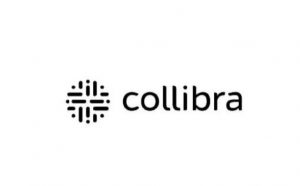The CFI ruled on the likelihood of confusion between Kolibri and Collibra. The issue was not only the similarity of the words, but of the claimed service: software and computer programs. Similar software, although different purpose?

Kolibri is a national German trademark that has claimed protection as a trademark since 1999 for software and computer programs, especially for real estate and facility management.
Therefore, the company Collibra (Belgium) considered itself to be in the right when it registered two EU trade marks on the word Collibra in 2017, a word mark and also a word/figurative mark. The two Collibra marks also claimed protection for software and computer programs, but unlike the earlier German mark, mainly for data governance software and catalogue software.
Kolibri versus Collibra – Likelihood of confusion?
The German trade mark owner Hans Dietrich of the national trade mark Kolibri saw a likelihood of confusion between the trade marks and filed an opposition against the trade mark application Collibra. The Opposition Division and the Board of Appeal of EUIPO upheld the opposition and found a likelihood of confusion.
Collibra appealed against this decision before the European Court of Justice (Court of First Instance, CFI). Could the software be similar even though there was a different purpose? The intended purpose is often decisive in IP law.
The applicant argued that the intended purpose of the opposing computer programs was very different – this had also been found by the Opposition Division. The applicant’s own trade mark Collibra claimed software for data processing of internal data, whereas the earlier German trade mark claimed software for automation of and assistance in real estate transactions and building permits.
However, the CFI rejected this claim.
Software with different purpose?
The Opposition Division had in no way found that the computer programs served very different purposes, the CFI said.
In fact, the Opposition Division had found that the specific purposes of these programs were not the same (their specific purpose of use is not the same), but that they were generally all used for data processing and that the method of their application (by means of a computer) was the same.
Data processing is therefore a common purpose of the software to be compared. Moreover, the computer programs for property and facility management of the earlier mark and the data governance software claimed by the word mark applied for may be designed and developed by the same companies, the CFI added.
The Board of Appeal was therefore correct to find a similarity between the goods and services claimed, software and computer programs, the court ruled. Furthermore, as the marks at issue were visually similar and even very similar phonetically and conceptually, there was a likelihood of confusion within the meaning of Article 8(1)(b) of Regulation 2017/1001.
Conceptual similarity in case of neologism?
The applicant referred in vain to the case-law (January 2008, Inter-Ikea v OHIM — Waibel (idea), T‑112/06, paragraph 70) according to which there can be no conceptual similarity between a trade mark containing a neologism which has no recognisable meaning in any official language of the Union and another trade mark whose verbal element has a real meaning for the public in the Union in general.
That case-law was not applicable in the present case, the CFI ruled, as the Board of Appeal correctly held that the marks applied for, like the earlier mark, could be associated with the term ‘Kolibri’ – because of the similar pronunciation of the word ‘Collibra’ and the word ‘Kolibri’.
Collibra’s action was dismissed (Cases T-128/20 and T-129/20).
Would you also like to protect or defend your trade mark?
Our lawyers will be happy to advise you. If you are interested, please contact us – we look forward to your call!
Our lawyers have many years of expertise in trade mark law as well as in the entire field of intellectual property and are entitled to represent you before any court – in Germany and internationally.
Sources (text and image):








Leave a Reply